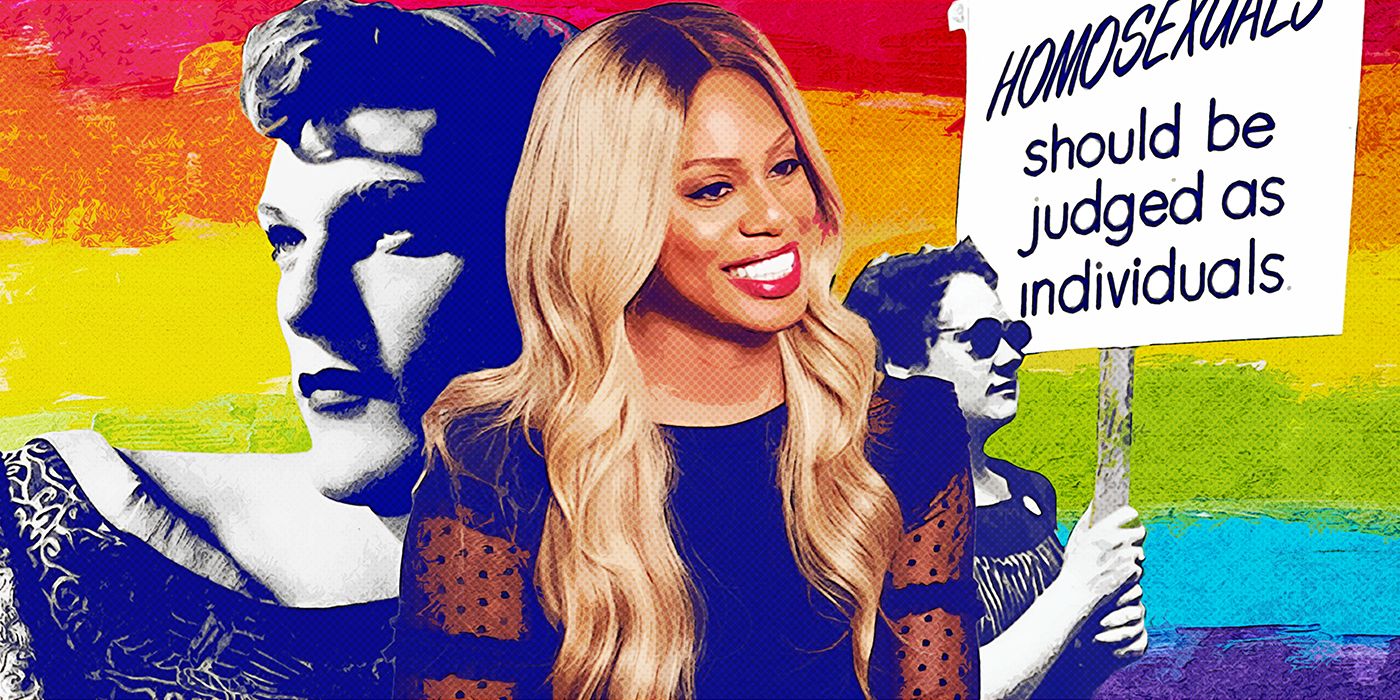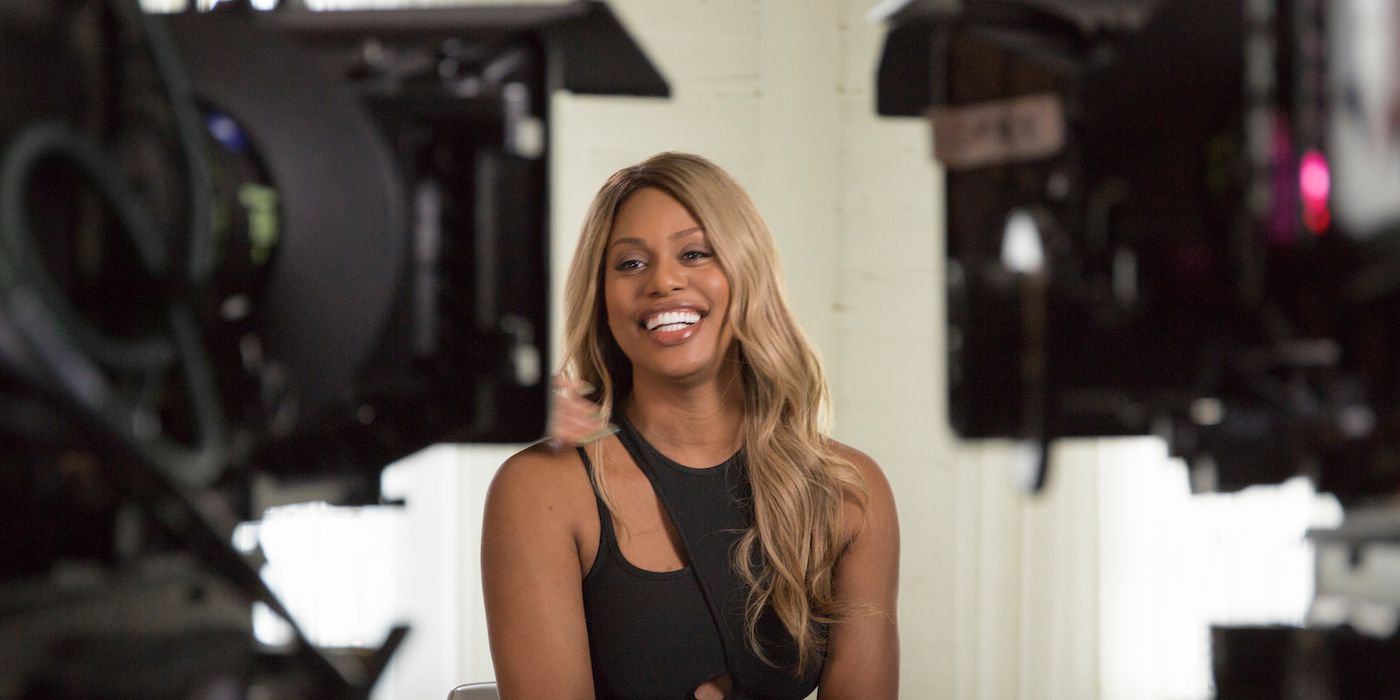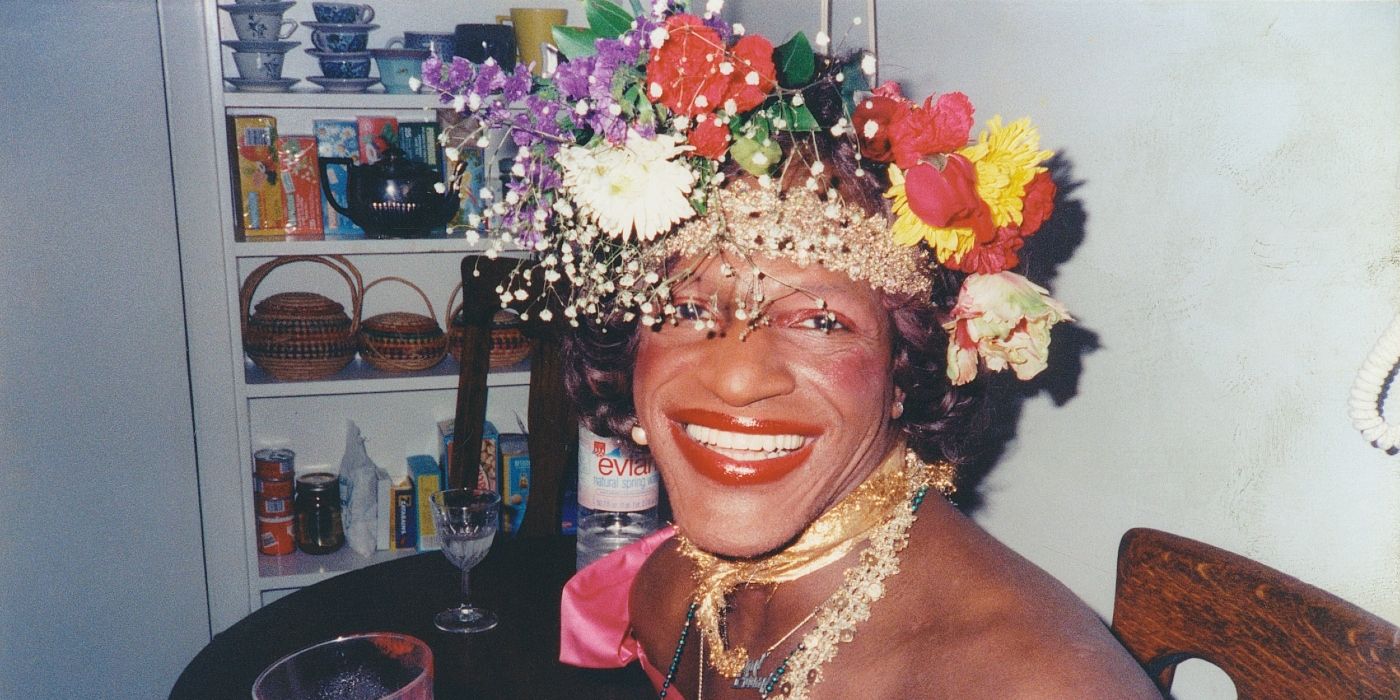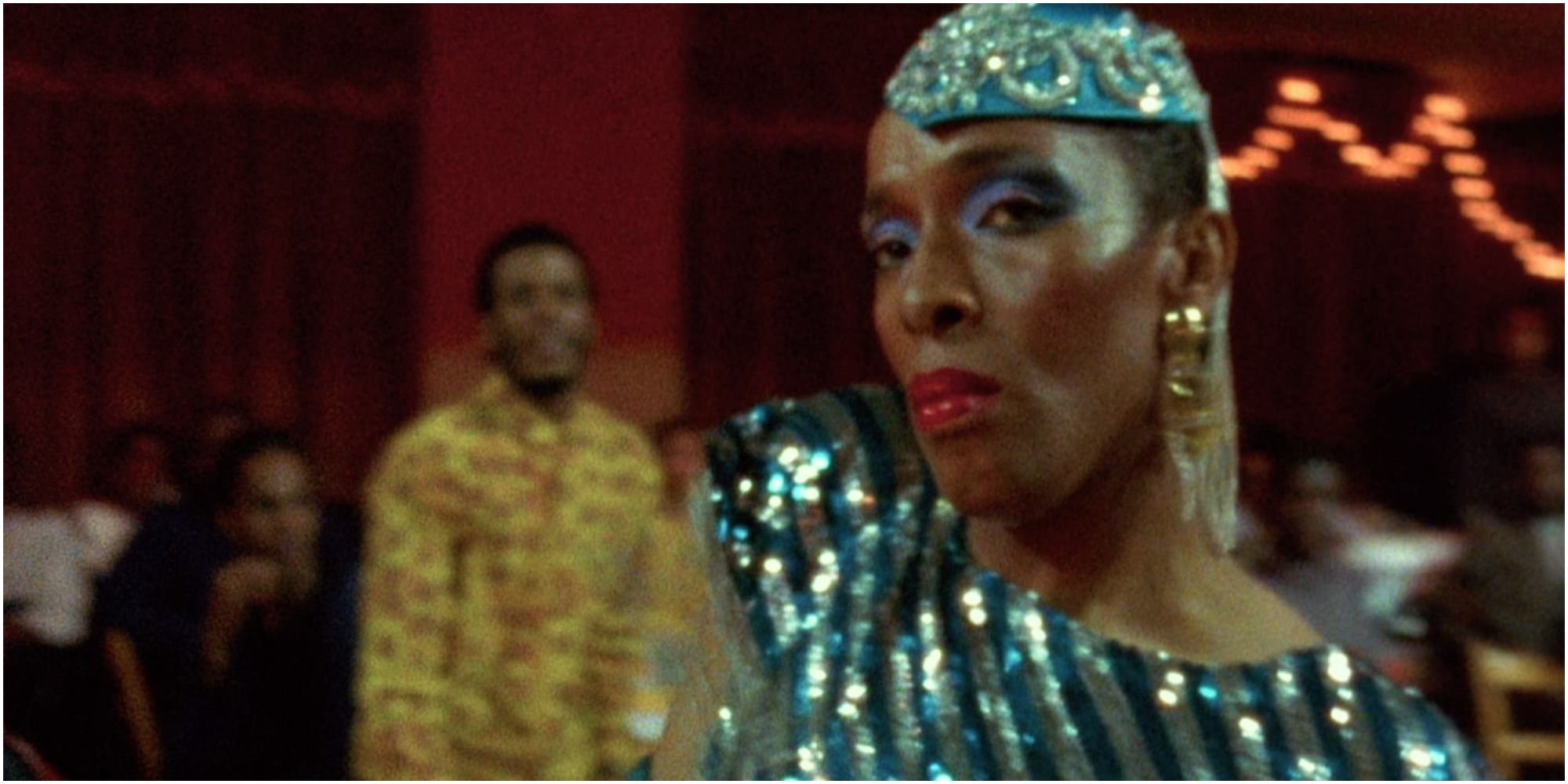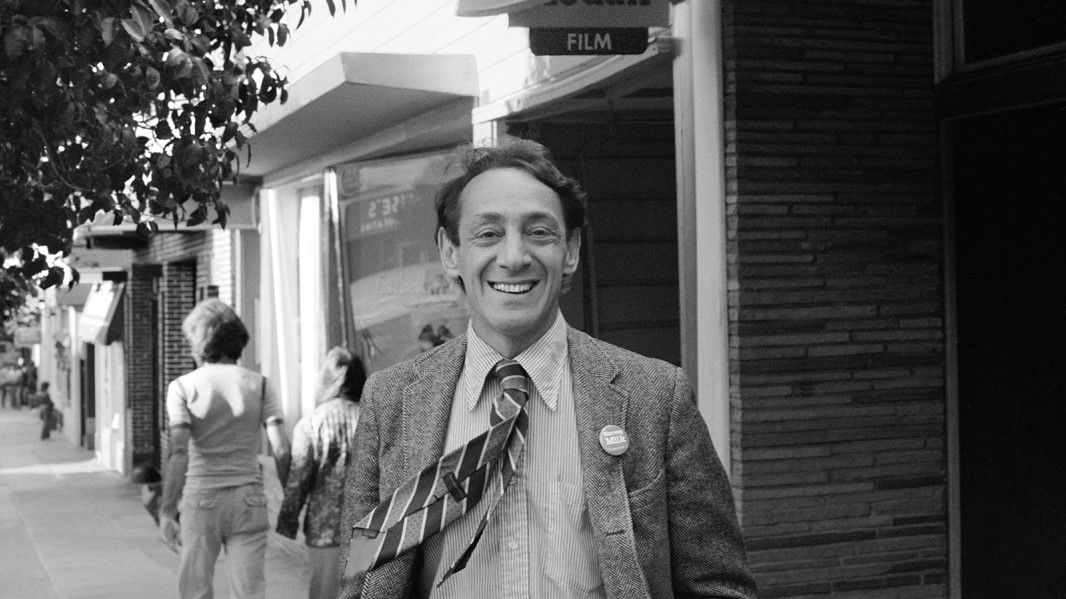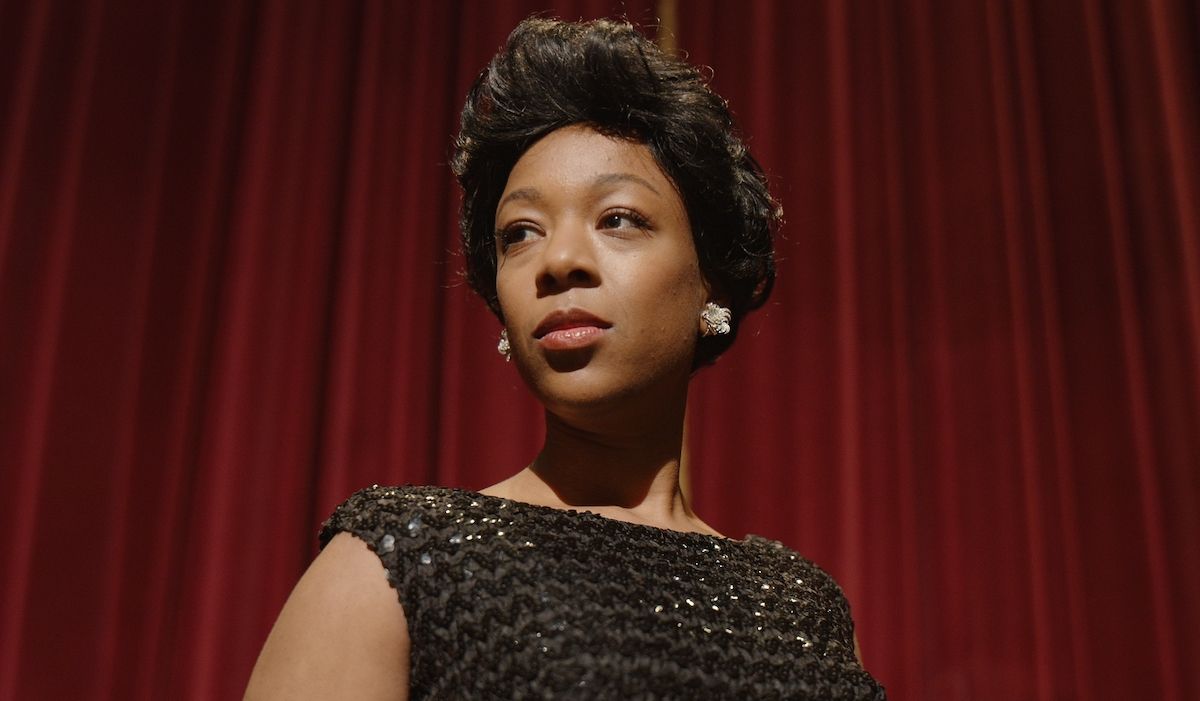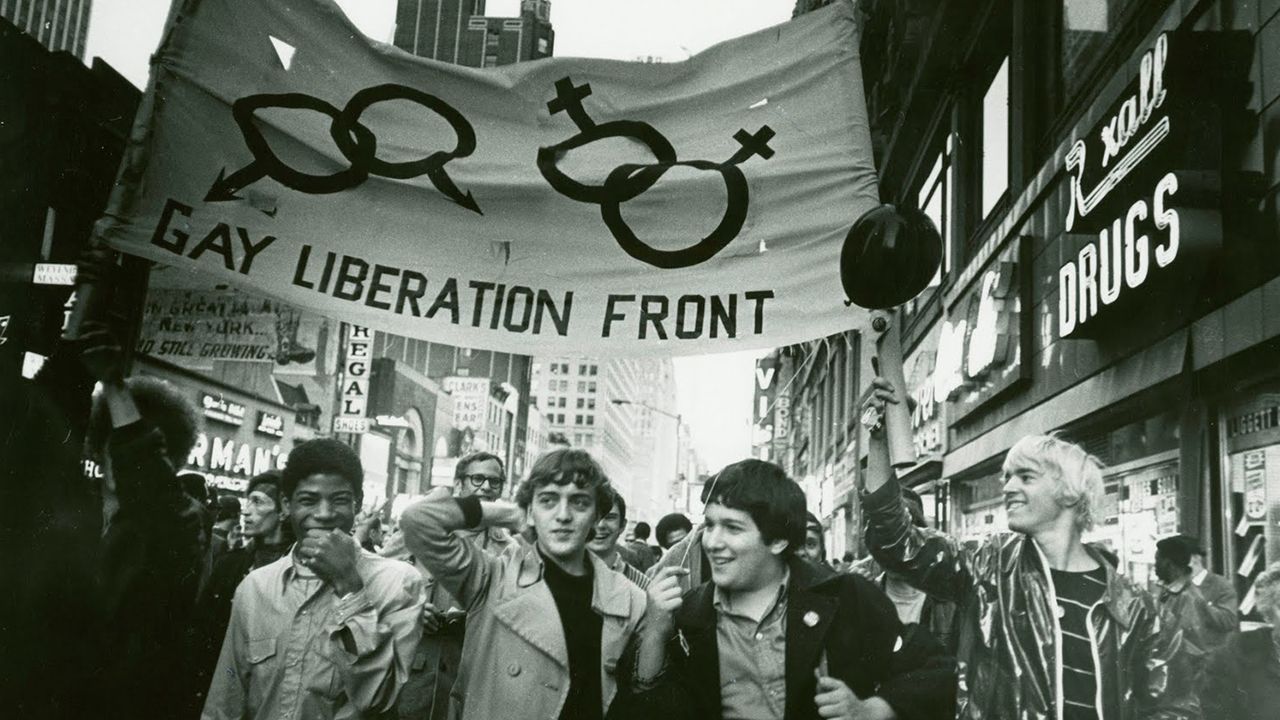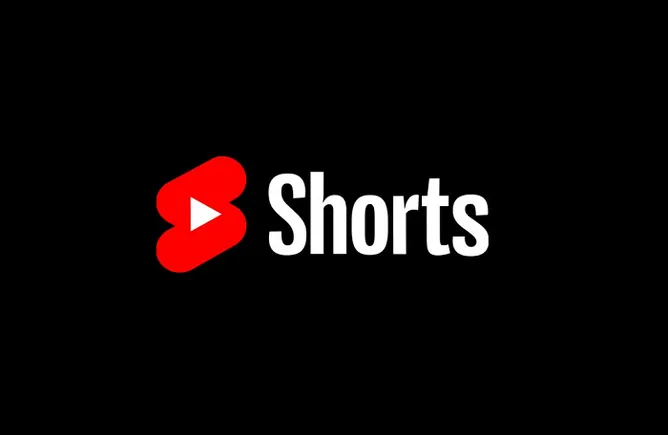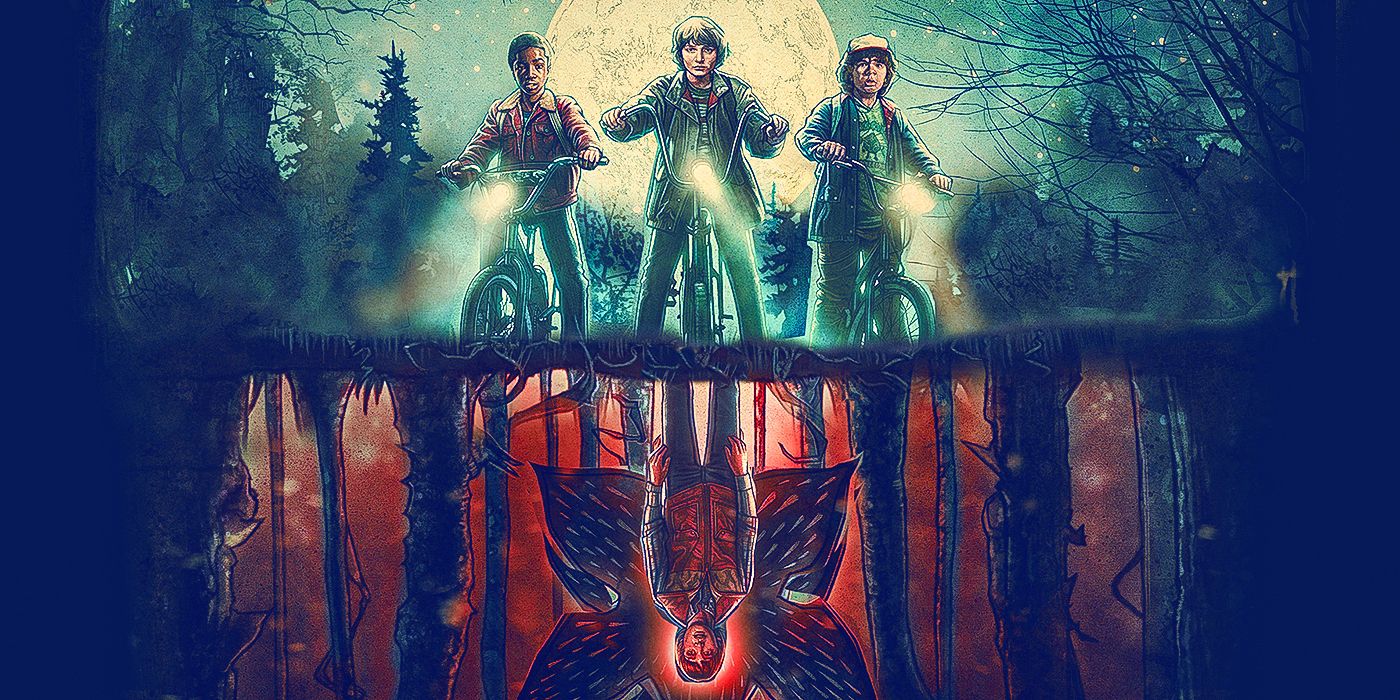Pride Month is here again. Rainbow-colored products adorn window displays and advertisements as far as the eye can see. Corporations, nonprofits, and elected officials fall over themselves to affirm that love is love. Fun, feel-good LGBTQ shows and movies dominate the home pages of every streaming service imaginable. It’s a big queer celebration.
How did we get here? Why do we celebrate Pride every June? The right to tell queer stories and histories in schools and other public spaces is being threatened around the country right now, and it is more important than ever to preserve them, if only to take the lessons our queer ancestors learned and adapt them for the correct political context. Here are 11 essential queer documentaries to honor LGBTQ history this Pride Month and beyond.
Disclosure (2020)
From the early days of film and television, the archetype of a trans person was a dangerous deviant. Modern depictions of trans people are much more authentic and nuanced. Disclosure provides an in-depth look at the way Hollywood portrays trans people has changed over time and the real-world impact that representation has on the lived experiences of trans people. The film was directed by Sam Feder and produced by Laverne Cox. Disclosure premiered at Sundance in January 2020 and became available to stream on Netflix by June of the same year. The film combines clips from historic trans characters and performances with interviews with trans people working in the industry today including Bianca Leigh, Chaz Bono, Alexandra Billings, Jen Richards, Susan Stryker, Lilly Wachowski, and Brian Michael Smith, among many others.
Disclosure was critically acclaimed, winning several awards in LGBTQ media. This film is important to LGBTQ history because it focuses specifically on one of the most marginalized identities within the community: trans people. Portrayals of trans people have historically been either cruel and mocking or more subtly insidious as with the subtext of casting a cis person to play a trans character. This casting implies that trans people are not who they say they are. Disclosure does not seek to exonerate Hollywood for the harm it has caused, but it does maintain a refreshing optimism about the future of trans representation.
Not Rated, 100 minutes, available to stream on Netflix.
The Death and Life of Marsha P. Johnson (2017)
Marsha P. “Pay It No Mind” Johnson is widely known and celebrated as the queen of the queer liberation movement. This documentary, directed by David France, celebrates Marsha P. Johnson’s life and activism: co-founding the Street Transvestite Action Revolutionaries (STAR) with Sylvia Rivera, participating in Stonewall, and advocating so fiercely for queer people in her community that she became known as the “Mayor of Christopher Street.” The film also explores the investigation into Johnson’s death compiled by activist Victoria Cruz, of the New York City based Anti-Violence Project. When Johnson was found dead on the shore of the Hudson River near Christopher Street Pier in 1992, the NYPD ruled her death a suicide despite suspicious circumstances. The film debuted at the Tribeca Film Festival on April 21, 2017 and was released on Netflix on October 6 of the same year for LGBT History Month.
The Death and Life of Marsha P. Johnson is essential queer history viewing because Johnson is the closest thing to a patron saint the LGBTQ community has. She is a symbol of resistance and joy in the face of oppression. Her story centers Black trans activists who are often left out of mainstream narratives about gay liberation activism in the years before and after Stonewall.
Rated TV-MA, 105 minutes, available to stream on Netflix.
Paris is Burning (1990)
Possibly the best known documentary on this list, Paris is Burning chronicles the ball culture of Black and Latinx queer communities in New York City. The film came out one year after the virality of Madonna’s hit song “Vogue,” and was directed by Jennie Livingston. The film follows several Ball houses, especially the House of Xtravaganza, which also features prominently in the FX Show Pose.
Paris is Burning Is a critically acclaimed film, having won film festival and critic association awards across the country, including Sundance. In 2016, the film was selected for preservation in the National Film Registry in the Library of Congress for its cultural and aesthetic value. The film was not without controversy, however — from within and outside the LGBTQ community. The homophobic reasons are obvious enough, but the more controversial criticism of the film centers around the fact that the director, Jennie Livingston, is a white queer person making a film for other white queer people about Black and brown queer people. Despite this consideration, the film is a foundation of queer storytelling and an enduring celebration of the Ball subculture.
Rated R, 78 minutes, available to stream on HBO Max.
How to Survive a Plague (2012)
A second entry for director David France, How to Survive a Plague is France’s directorial debut. The film recounts the early years of the AIDS epidemic and the botched response by the U.S. government. Activist groups ACT UP (The AIDS Coalition to Unleash Power) and TAG (Treatment Action Group) and the demonstrations of all sizes they organized were integral to ending the epidemic and saving lives. Well known activists from both groups, including Peter Staley and Larry Kramer, feature prominently alongside archival footage of demonstrations, news coverage, and ACT UP meetings. A younger Anthony Fauci, epidemiologist with the National Institute of Health, makes several appearances as well.
How to Survive a Plague faced some criticism for focusing almost exclusively on the wealthier, whiter, cisgender activists in ACT UP, but this certainly did not stop critics from showering the film with awards. It was nominated for an Oscar, won a Peabody and several film festival awards. How to Survive a Plague, despite the valid criticism of its gaze and exclusion of diverse voices, is one of the most comprehensive depictions of the activist response to the US government’s inaction and media’s homophobia surrounding an outbreak that would go on to kill over 700,000 Americans.
Rated TV-MA, 110 minutes, available to stream on HBO Max.
The Times of Harvey Milk (1984)
Harvey Milk, camera salesman turned activist, was one of the first openly gay elected officials in the United States when he became a supervisor of the city of San Francisco in January 1978. The Times of Harvey Milk, directed by Rob Epstein, chronicles his meteoric rise and cultural impact in both life and death. As a politician, he prioritized LGBTQ rights and interest so much that he was assassinated alongside Mayor George Moscone inside City Hall in November 1978 by fellow city supervisor Dan White.
The Times of Harvey Milk debuted at the Telluride Film Festival in 1984. It went on to win the Oscar for Best Documentary and the Special Jury Prize at Sundance. Milk’s death had far-reaching impacts on the LGBTQ community even beyond San Francisco. A notable example is that Gilbert Baker created the first rainbow pride flag for a protest following Milk’s death. Milk’s story impacts current politics by launching Dianne Feinstein into the public eye, where she remains today as a member of Congress. Harvey Milk’s bravery in being openly gay in the 1970s is inspirational, as is the optimism with which he conducted his political career.
Rated TV-MA, 87 minutes, available to stream on HBO Max
Equal (2020)
Equal is a four-part docuseries narrated by Billy Porter. Episode 1 focuses on the activism of two revolutionary gay rights organizations active in the 1950s, the Daughters of Bilitis and the Mattachine Society, and stars Anthony Rapp, Cheyenne Jackson, Shannon Pursen, and Heather Matarazzo. Episode 2 focuses on 20th century transgender pioneers Lucy Hicks Anderson (Alexandra Grey), Christine Jorgensen (Jamie Clayton), Jack Starr (Theo Germaine), and the trans girls impacted by the Compton Cafeteria Riot (Isis King). Episode 3 focuses on the Black queer experience in the 20th century and stars Samira Wiley as Lorraine Hansberry, Jai Rodriguez as Jose Sarria, and Keyinan Lonsdale as Bayard Rustin. Episode 4 focuses on the Stonewall Riots and their immediate aftermath, and stars Hailie Sahar, Scott Turner Schofield, and Elizabeth Ludlow. Episode 2 was directed by Kimberly Reed, but the rest of the episodes were directed by Stephen Kijack.
With only four episodes, the show is able to provide some knowledge about a variety of core topics in LGBTQ history in the 20th century. It is a crash course, but it’s an effective one. The subjects included in each episode were intentionally inclusive. The combination of archival footage, original audio, and actor reenactments of real events is unique and compelling.
Rated TV-MA, 40-minute episodes, available to stream on HBO Max.
Visible: Out on Television (2020)
Visible: Out on Television is a limited docuseries chronicling the representation of and opportunities for LGBTQ people on television. Visible is a documentary in five parts, all of which are directed by Ryan White. The show features clips from TV shows and interviews with LGBTQ actors including Janet Mock, Margaret Cho, Neil Patrick Harris, Wilson Cruz, Asia Kate Dillon, Wanda Sykes, Andy Cohen, and Lena Waithe. Each episode tackles queer representation in a different section of television history. Episode 1 covers the beginning of TV history through Stonewall; Episode 2 covers Stonewall through the late 1970s; Episode 3 covers the AIDS epidemic and its impact on LGBTQ representation; Episode 4 covers the late 1990s through the 2000s, beginning with Ellen DeGeneres’s coming out story; Episode 5 covers the state of representation in the 2010s.
This series does not dive into some of the darkest parts of queer history; those elements are beyond its scope. It is easy to discount this project as frivolous when compared to some other documentaries on this list, but Visible acknowledges and makes explicit the direct link between the way LGBTQ people have been represented onscreen and their treatment by society in everyday life and in policy. The relative ubiquity of queer characters onscreen today is a revisionist bias this series seeks to dispel with essential historical context.
Rated TV-MA, 1-hour episodes, available to stream on Apple TV+
Do I Sound Gay? (2014)
Directed by David Thorpe, Do I Sound Gay? Is a documentary exploring specific types of vocal fry and speech patterns associated with gay and bisexual men. The film seeks out an explanation for this shared vocal paradigm as well as indications about the internalized homophobia and external homophobia faced by the men who sound “gay.” The film features interviews with linguists and many celebrities including Tim Gunn, David Sedaris, Margaret Cho, George Takei, and Dan Savage.
The film was partially funded through Kickstarter; It blew past its original goal and was completed with other funding streams. It was released theatrically in only 18 theaters nationwide, so it was easy to miss. This film is important for understanding queer history because it seeks to name and trace the history of one of the most unanimously recognized indicators of queer culture. That the film’s director was struggling to accept this particular indicator in himself while making the film is also relatable and can model self-acceptance.
Not Rated, 77 minutes, available for streaming on AMC+ or IFC Films Unlimited, available for digital rental or purchase from Amazon Prime, Google Play, and Apple TV.
Matt Shepard is a Friend of Mine (2013)
Matthew Shepard’s death is one of the most gruesome and widely known examples of anti-LGBTQ hate violence in American history. His murder in 1998 forever changed the way anti-LGBTQ violence is understood and addressed in the United States; the first hate crimes legislation specifically protecting LGBTQ people is called the Matthew Shepard and James Byrd Hate Crimes Prevention Act, and was signed into law in 2009 by Barack Obama. Matt Shepard is a Friend of Mine follows director Michele Josue, a friend of Shepard’s, as she travels to the pivotal locations of Shepard’s life to commemorate 15 years since his death. She interviews family and friends to create a celebration of a life cut short that is as sweet as it is tinged with grief.
LGBTQ people have not yet been protected by federal hate crime statutes for more than the fifteen years between Shepard’s death and the making of this film. The power of regressive politics in this country right now makes it more important than ever to understand where these protections come from and the suffering the LGBT community has been forced to endure to get there. Matt Shepard is the closest thing to a martyr the queer community has, and his sacrifice should never be forgotten.
Not Rated, 89 minutes, available to stream on PlutoTV and Tubi.
Before Stonewall (1984) and After Stonewall (1999)
This pair of documentaries are companion pieces and are best consumed together. Before Stonewall traces the history of the LGBTQ community in the United States from the 1920s through the Stonewall Riots in 1969. It explores queer persecution, criminalization, medicalization, early gay rights pioneers, and the Lavender Scare that drove LGBT people from public service and Hollywood during the Cold War. Directed by Greta Schiller, the film is narrated by lesbian author Rita Mae Brown and was selected for preservation in the National Film Registry in 2019.
After Stonewall traces the 30 years after the Stonewall Riots. It was directed by producer of the original film John Scagliotti and narrated by rock star Melissa Etheridge. This film included interviews with LGBT heavyweights like Barney Frank and Larry Kramer. It covers the successes the queer community had after Stonewall like the declassification of homosexuality as a mental ilness and an increase in visibility and acceptance; it covers some failures of queer liberation in this period as well, such as the federal response to the AIDS epidemic and the passage of Don’t Ask Don’t Tell.
These films are together a wonderful primer to American queer life in the twentieth century. Two films together provide a much more comprehensive view of the nuances of a struggle for freedom.
Before Stonewall: Not Rated, 87 minutes, available to stream on Fandor or to rent/buy digitally on Prime Video.
After Stonewall: Not Rated, 88 minutes, available to stream on PlutoTV.
Tongues Untied (1989) and Brother Outsider: The Life of Bayard Rustin (2003)
While these films were not made by the same filmmakers or cover the same topic, both films aired widely on the PBS show POV, and are more difficult to find on streaming platforms. Both films are incredibly important to LGBTQ history.
Tongues Untied is an experimental documentary that blends traditional and non-traditional nonfiction filmmaking with poetry. Created by Marlon T. Riggs, the film was incredibly controversial when it was first released because it was created using funding from the National Endowment of the Arts and airied a gay kiss on PBS. The film explores the unique tension of Black gay identities and experiences in a world that has refused to allow an individual to hold both. It is one of the most in-depth look at Black masculine queerness in film.
Not Rated, 55 minutes, available for streaming on Kanopy with participating library card or university login.
Brother Outsider: the Life of Bayard Rustin was directed by Nancy Kates and Bennett Singer. The film chronicles the personal and activist life of civil rights icon Bayard Rustin. Rustin organized with Martin Luther King, Jr. and was one of the minds behind the 1963 March on Washington. Less well known, however, is the full breadth of Rustin’s career. He was gay, and this created tension between Rustin and the rest of the Civil Rights leaders at the time. The film also explores his relationship with the Communist Party, his conscientious objection to serving in World War II, and his arrest for being LGBTQ. The film faced some criticism for not focusing enough on the man’s queerness, but it was one of the first texts to acknowledge this part of his identity at all.
Not Rated, 1 hour, available on Kanopy with participating library or university login
























































![Social Media Spring Cleaning [Infographic] Social Media Spring Cleaning [Infographic]](https://imgproxy.divecdn.com/9e7sW3TubFHM00yvXe5zvvbhAVriJiGqS8xmVFLPC6s/g:ce/rs:fit:770:435/Z3M6Ly9kaXZlc2l0ZS1zdG9yYWdlL2RpdmVpbWFnZS9zb2NpYWxfc3ByaW5nX2NsZWFuaW5nMi5wbmc=.webp)
![5 Ways to Improve Your LinkedIn Marketing Efforts in 2025 [Infographic] 5 Ways to Improve Your LinkedIn Marketing Efforts in 2025 [Infographic]](https://imgproxy.divecdn.com/Hv-m77iIkXSAtB3IEwA3XAuouMwkZApIeDGDnLy5Yhs/g:ce/rs:fit:770:435/Z3M6Ly9kaXZlc2l0ZS1zdG9yYWdlL2RpdmVpbWFnZS9saW5rZWRpbl9zdHJhdGVneV9pbmZvMi5wbmc=.webp)



